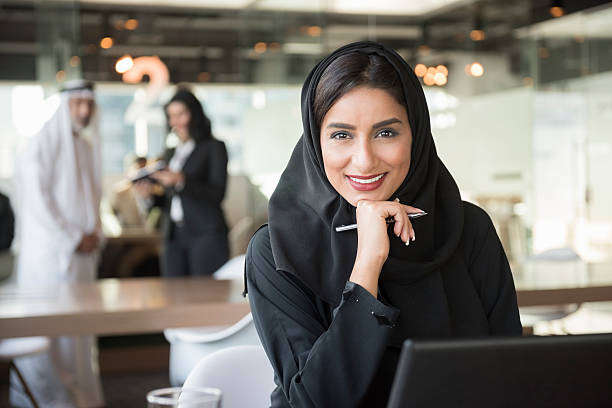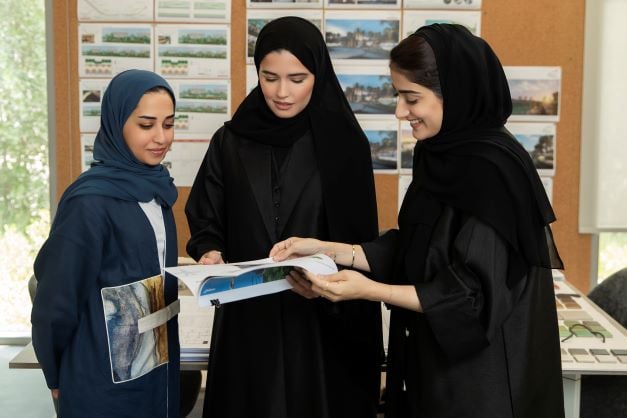
An Overview
It is frequently recommended to look to a nation's women and children to determine its level of development. The status they have is a reflection of the societal and developmental context. If women and children cannot exercise their fundamental rights, no country has the right to refer to itself as developed. A country's societal makeup as well as infrastructural and economic development are indicators of its success. Gender discrimination has always been a significant problem throughout the world. Disparities have been created and still exist in many areas on the social, economic, psychological, and other levels.
The position of women has changed dramatically as a result of social reforms, enlightened governments, influential change-makers, and changing times. The world has come to the realization that keeping women in their place will halt economic growth and development. The Arab world, particularly the United Arab Emirates (UAE), which has led global development for several decades, has undoubtedly demonstrated how even a small shift in perspective may have a profound impact.
Through gradual reforms, the UAE has been able to dispel regional stereotypes and assumptions regarding the status of women. In the UAE, women are viewed as the foundation of the family by the traditional and religious structures of the community. The emphasis has changed from being solely at home to being at work as a result of the societal outlook change, modernization process, and impact of globalization. The goal of the government is to give women the resources and facilities they need to live financially and professionally independent lives. It seeks to foster an environment that encourages women to choose a career in the public or private sector.
Working Women
The Constitutional and Legal levels were the first to undergo revision. All UAE citizens, including women, have equal rights under the country's constitution. It has been addressing topics that were previously neglected, such as maternity leave, child custody, nursing breaks, and more, with regular changes.
The question of gender balance—or rather, its absence—came up next. The UAE Gender Balance Council, which carries out duties such as reviewing laws and regulations and launching initiatives to improve gender balance in the workplace, was founded by the government in May 2015. The UAE's goal is to be among the top 25 nations in the world for gender equality by 2021, and the Council is responsible for ensuring that best practices and procedures are used to guarantee federal institutions meet their gender balance goals.
Education is regarded as the most effective method for enacting change. Education for Emiratis is free at public schools, colleges, and universities because it is a fundamental entitlement. The UAE government guarantees equal access to all levels of education and vocational training with a focus on the eradication of gender imbalances in education. The UAE Cabinet passed a new rule in July 2012 making it mandatory for Emirati children to enter school at the age of six in an effort to bring the compulsory school-leaving age in line with other advanced nations. Until they have finished Grade 12 or turn 18, whichever comes first, they must attend school.
The Renaissance of Abu Dhabi Women Association hosted the inaugural women's gathering in the United Arab Emirates in 1973. initiating women's socioeconomic empowerment General Women's Union (GWU) was founded by Sheikha Fatima Bint Mubarak in 1975, integrating all women's associations in the UAE, with the purpose of advancing the unifying ideology of her late husband, the late Sheikh Zayed, the Founding Father of the UAE.
Since then, the government has launched a number of programs to promote economic empowerment.
The government decided to require Emirati women to serve on the boards of directors of state organizations, businesses, and institutions in December 2012
The National Strategy for Empowerment of Emirati Women in the UAE for 2015–2021 (WAM) was introduced by the GWU in 2015. It offers a framework for the establishment of work plans for women's empowerment by the government, the commercial sector, and civil society organizations.

Things To Anticipate
The government started acting inclusively on its own end to show residents the way. Nine women make up about 27 percent of the 32 ministers in the present government. The UAE Cabinet has one of the largest percentages of female members, demonstrating the powerful position of Emirati women. Every year, August 28 is also recognized in the UAE as Emirati Women's Day. The UAE's social structure is currently reflecting the adjustments and reformative measures made.
The UAE is ranked number one in the world, according to the 2016 Global Gender Gap Report from the World Economic Forum:
First place for the sub-index of literacy rate and eighth place for the sub-index of salary equality for similar work
first place for the sub-index of secondary enrollment
first place for the sub-index of female/male birth sex ratios
The nation wants to continue on its long-overdue journey toward bringing equality without stopping.
Read similar blogs here
Looking to hire Emirati graduates for your organization? Visit www.skillplay.me to know how to do it with one simple click!


